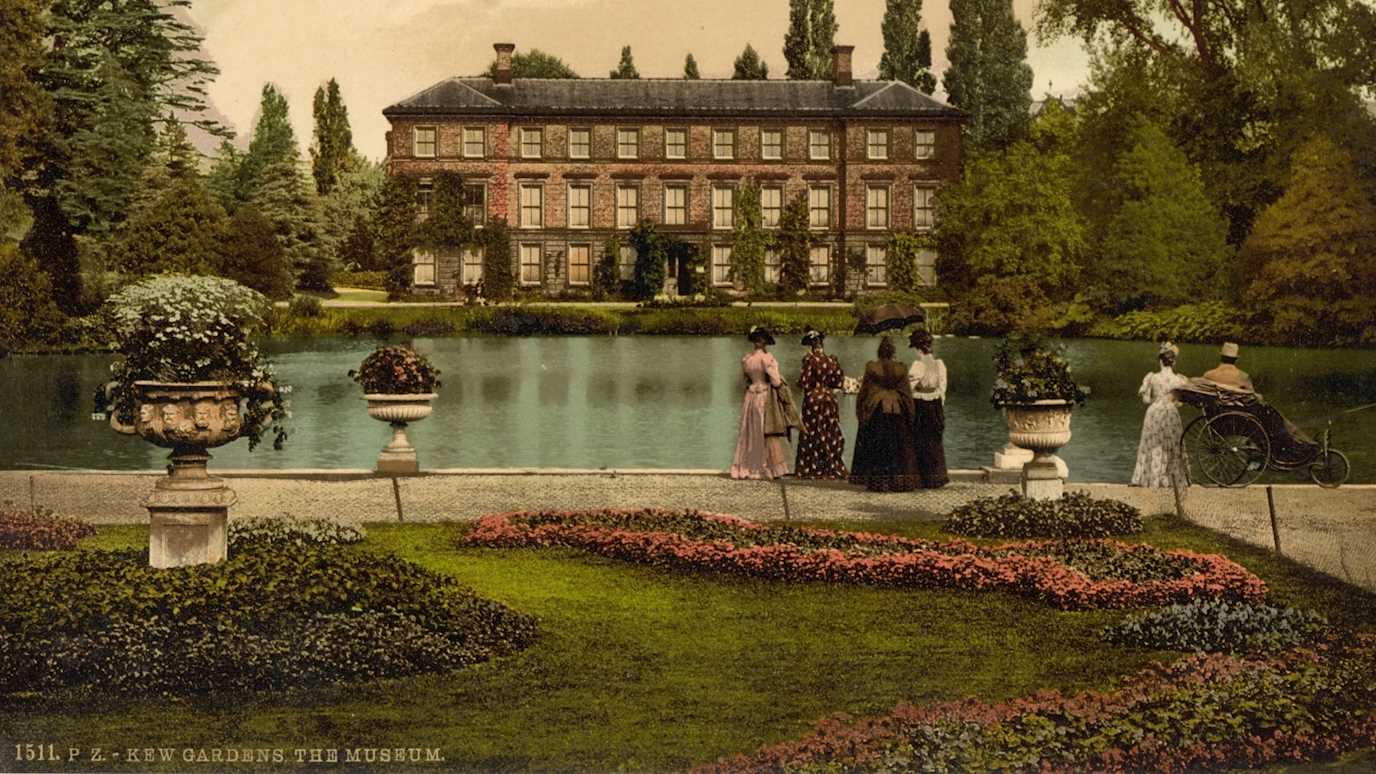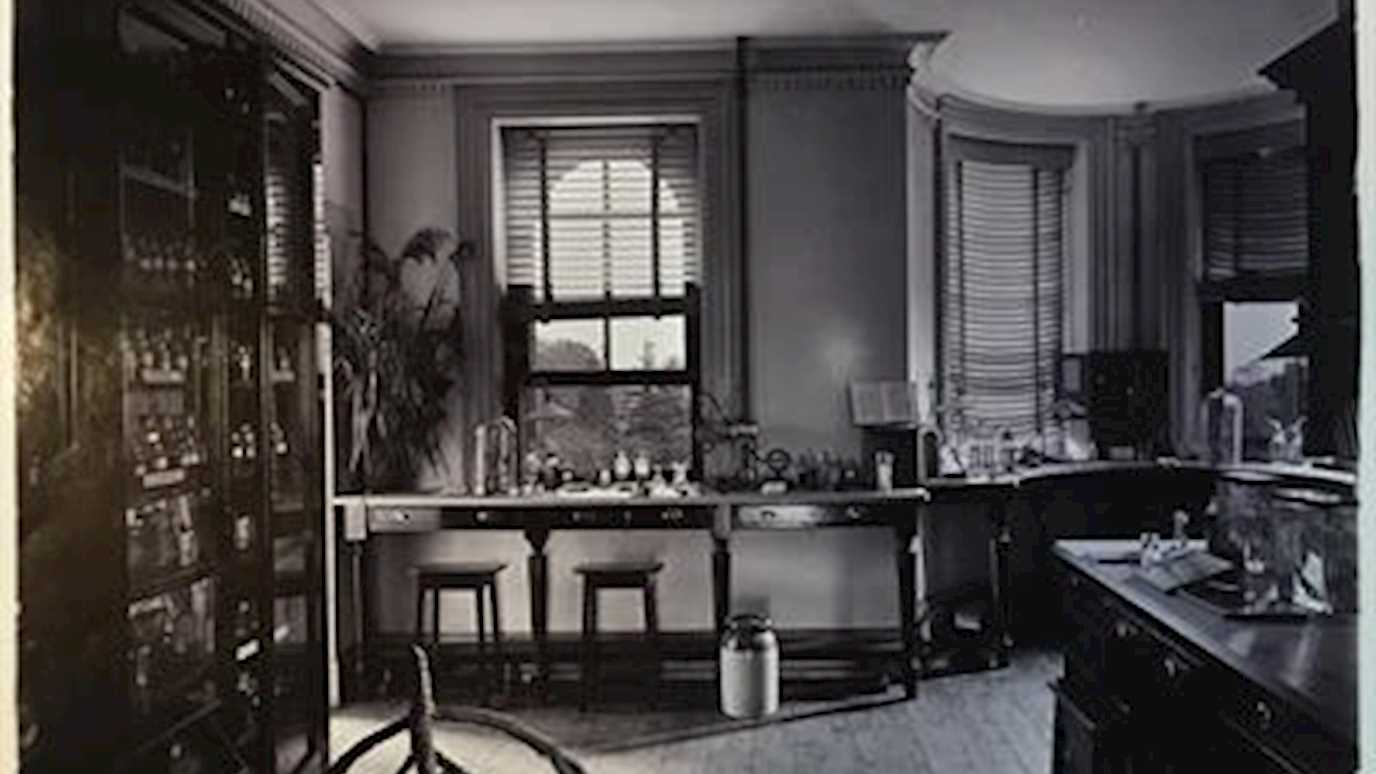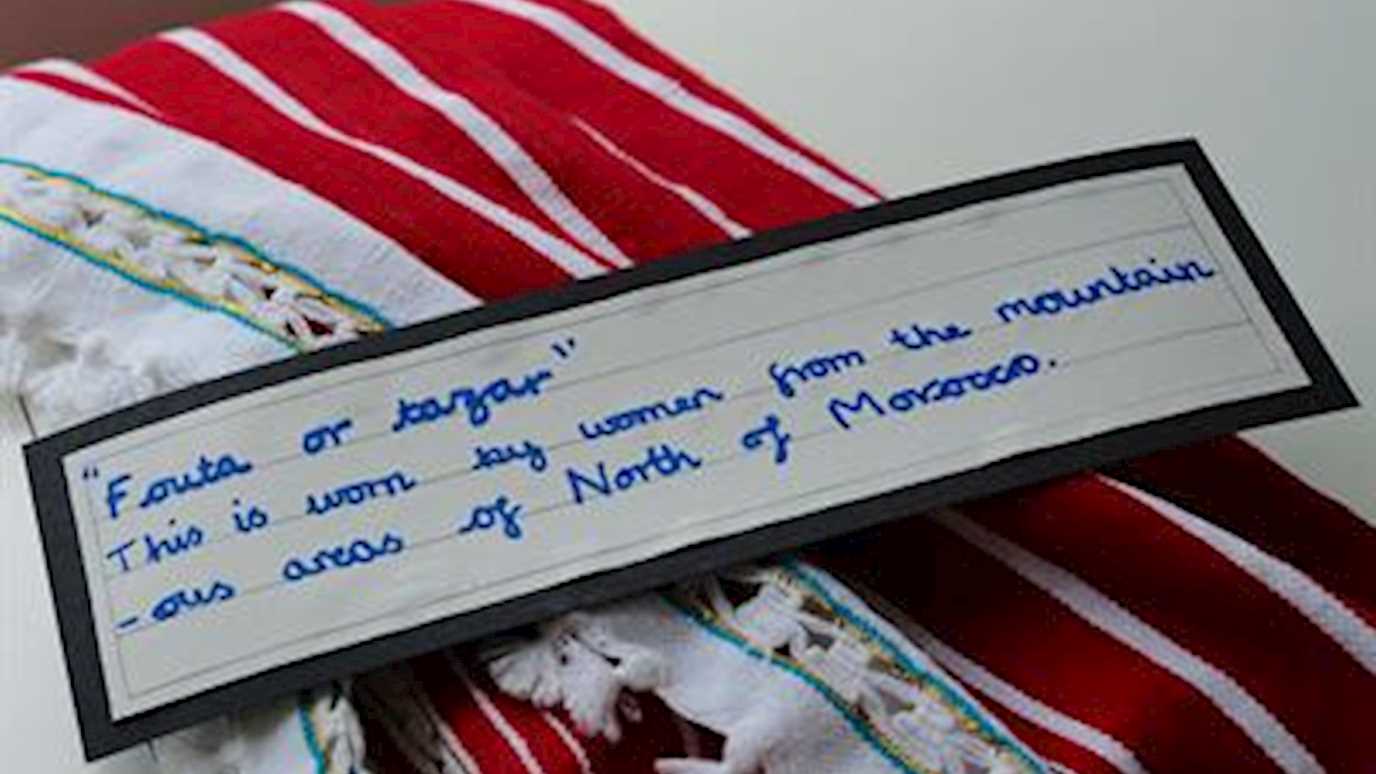Posted on 30/11/2017 by Felix Driver
The theme of circulation has recently attracted a lot of attention in the history of science, empire and material culture. In the context of museum studies, this work draws attention to the movement of specimens and artefacts into and out of collections, both as an empirical fact and a conceptual problem. Why and under what circumstances does stuff become mobile, both before and after it enters museums? What are the different forms of mobility associated with different kinds of collections, including both natural and cultural objects? Why does this ongoing mobility matter to the way we understand the biography of collections?
Parasol made from bark, amongst the Parkes papers in Kew’s Economic Botany Collection. The collection was originally divided between Kew and the South Kensington Museum, and further samples were sent to various Australian Museums.
For too long historians of museums have written about them as the finished article – sites for the production of knowledge, authority and power – and not enough as unfinished collections of collections. Studies of collections in circulation provide one way of examining their ongoing lives, their messy pasts and hopeful futures.
The Collections in Circulation seminar series takes place at the Institute of Historical Research in January-March 2018. It includes five talks, open to all, from a variety of museum and academic researchers.
Victoria Pickering, currently working on the Sloane collections at the British Museum, will discuss the mobility of natural history objects in the early modern era, drawing attention to the role of catalogues in shaping our knowledge of these objects.
Caroline Cornish & Felix Driver will present work in progress on the Mobile Museum project, looking at the flows of material into and out of Kew’s Economic Botany Collection in the nineteenth and twentieth centuries.
Laura Peers will explore the movements and shifting meanings of indigenous heritage, focusing on a masterpiece of Haida art, the ‘Great Box’, incorporated in General Pitt Rivers’ collection in the nineteenth century and replicated by Haida artists in 2015.
Sarah Longair will talk about cultures and practices of collecting ethnographic artefacts in the western Indian Ocean in the age of empire, focussing especially on collections from the Maldives and Sri Lanka.
Julie Adams will present a study of the collecting practice of Paul Montague, a Cambridge zoologist who travelled in New Caledonia in 1913, whose ethnographic collection was left to the Cambridge Museum of Archaeology & Anthropology.
For further details of the programme, please click here.

























